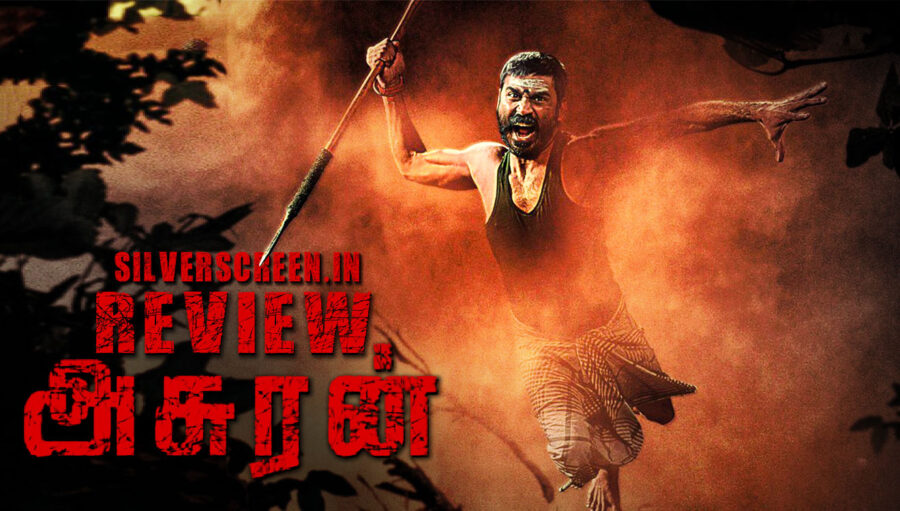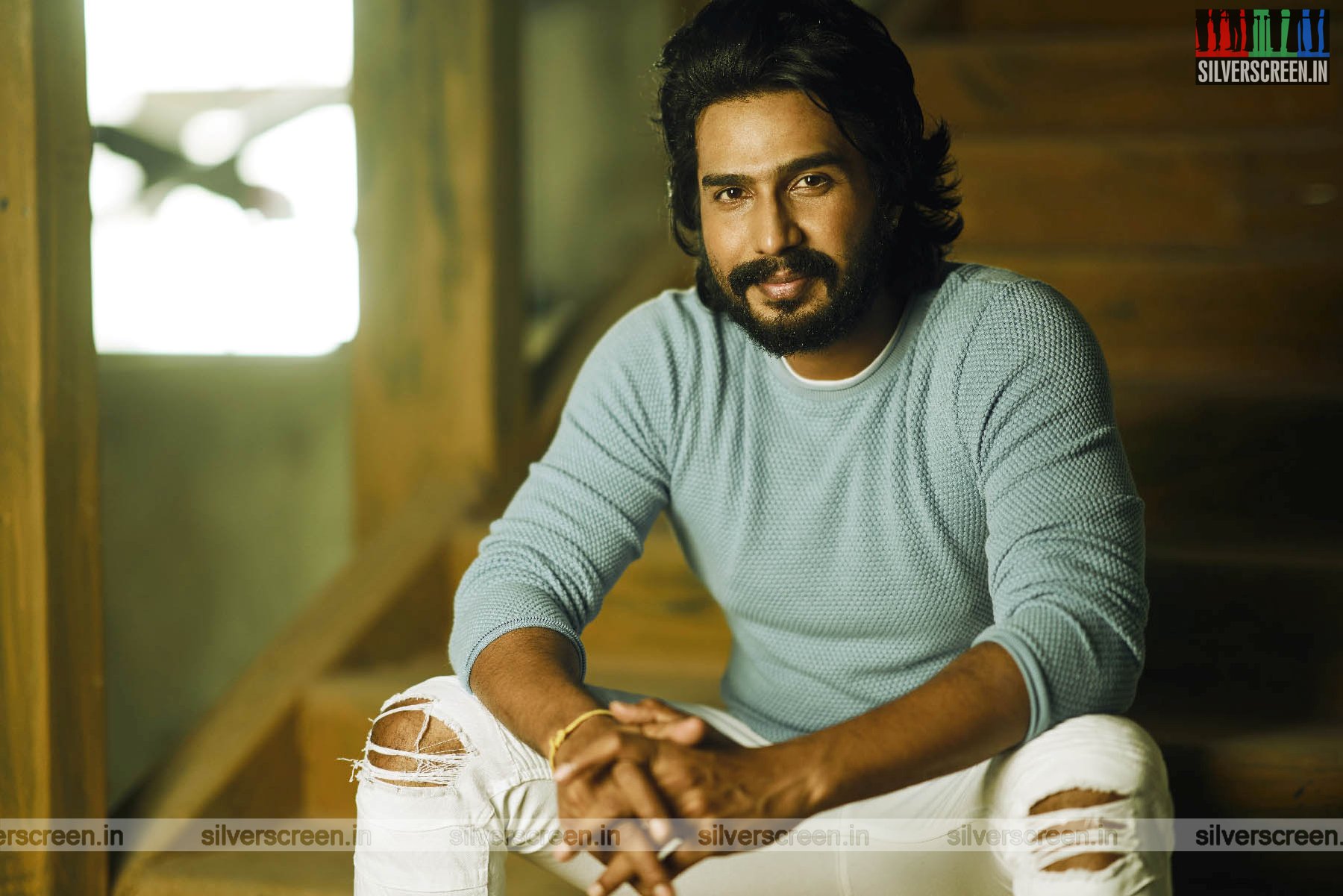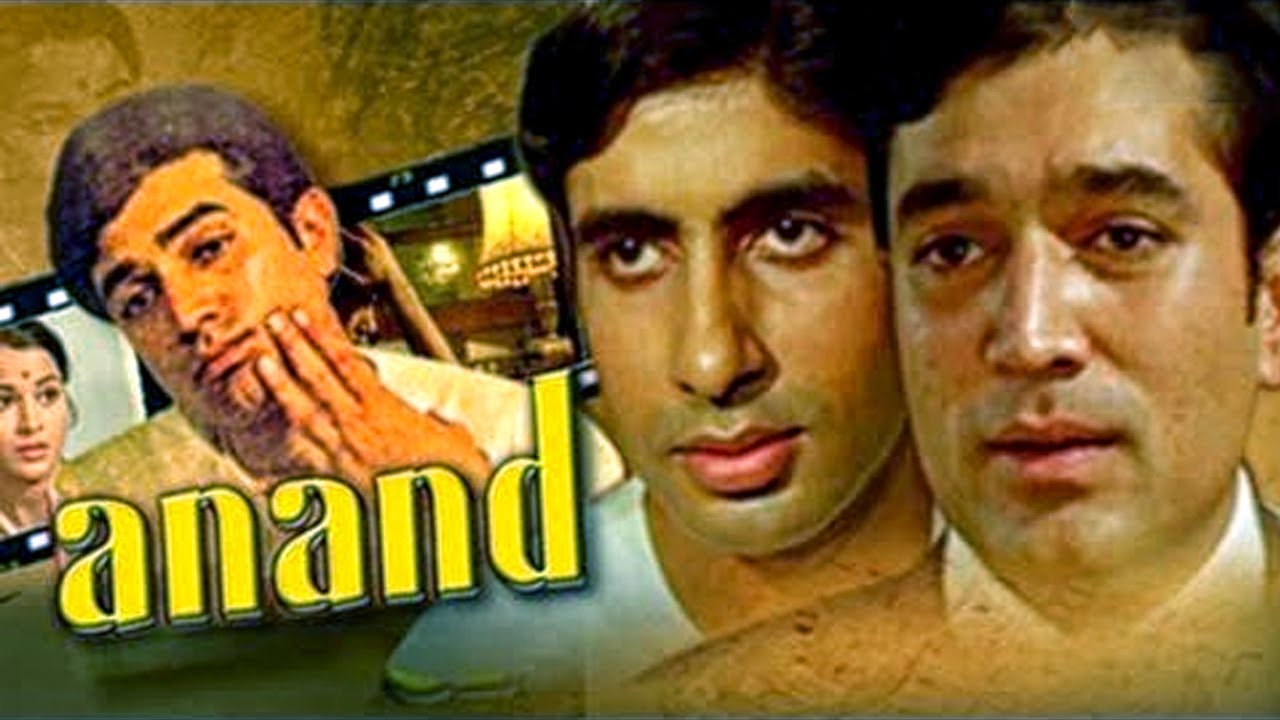Director: Vetrimaaran
Cast: Dhanush, Manju Warrier, Ken Karunas, Pasupathy, Prakash Raj
Asuran is a bloody revenge saga, that’s also weirdly enough about the futility of violence. Poomani’s Vekkai, the novel it is based on, is an almost coming of age saga, that is about the cycle of violence and oppression in our hinterlands. Herein lies the difference between the source and cinema.
The title in blood-red to rousing music (a fantastic score by GV Prakash, perhaps his best yet) evokes a sense of what’s at stake, right at the beginning of Asuran. The film begins with young Chidambaram (Ken Karunas) and his father Sivasamy (Dhanush) on the run, in the wilderness.
One of my biggest pet peeves with our cinema is the absolute disregard for dialogue sync on screen. It was also one of Asuran’s biggest drawbacks. For large parts of the film, especially the beginning, I was really distracted by how every dialogue seemed to have been rewritten at the dubbing table. This compromises so much of the overall integrity of what one is watching. To get past that takes some time. But that Vetrimaaran draws our attention to his film, despite this major flaw and helps us see the people in the film with empathy and feel what they are feeling is also a credit to his enormous talent as a director. And the stellar cast he’s assembled.
Chidambaram, unable to see his aatha suffer, after the brutal murder of his brother (the scenes following this death are graphic and gutting), goes out to get his revenge. He ends up hacking to death the Vadakooran (northerner) Narasimhan. Which is why he and his father are on the run. The murdered man’s henchmen are after him. Chidambaram’s act is one of desperation because he sees his father as nothing more than a drunken wastrel who’s incapable of standing up to violence.
But what he doesn’t know of course is revealed to him (and us) just before the interval block. Sivasamy unleashes the asuran in him, on the men out to kill him and his son. In stylised violence and slowmo shots, as whistles fly Vetrimaaran gives Dhanush’s fans delayed gratification. We finally get a peek at who he really is. In that sense, Asuran is like Baasha. But this is a film that also has its eyes on the bigger picture. It also draws attention to the oppression caste leads to, and making someone as prominent as Dhanush the face of this struggle on screen is a huge positive. Every time Dhanush resorts to violence it transforms into catharsis in the screenplay though it does not become cathartic for Sivasamy himself. Rather it simply paints him human, thirsty for revenge or trying to save his own (panchami land, his son). Whereas the violence of the upper castes thrives in the humiliation of those they consider beneath them.
It is a pair of slippers that begin this gory cycle of violence in Asuran. Sivasamy’s fiancee Maariyamma (Ammu Abhirami) has a thorn prick her feet one day while walking amidst shrubs. In a bid to show her his love, he has the cobbler make her a pair of slippers. Caste rears its ugly head, and the young girl is humiliated, hit and asked to walk around town with the slippers on her head. Action and reaction continue until multiple deaths ensue and Sivasamy’s life is torn asunder.
It is footwear again that leads to Sivasamy’s elder son Murugan’s death. As revenge for his father’s humiliation, Murugan hits Vadakooran with his slippers.
Chidambaram, who initially refuses to wear slippers, after he understands his father’s story, before heading to the court complex, asks Sivasamy to buy him a pair of slippers and wears them.
Vetrimaaran’s use of footwear as symbolism for caste, and what Sivasamy has struggled for, is a simple but powerful device.
For an industry whose ‘heroes’ are notoriously vain, who’re known to reject scripts that even show them as fathers, for Dhanush who’s in his 30s to play the father of three (of which two are grown-up), shows not only courage but also belief in himself, and a commitment to his craft. He shines in every single frame. Manju Warrier’s Pachaiyammal is a well-knit role as well. She looks convincing as a strong mother but especially in grief. Even Dhanush looks utterly devastated for large parts of the film. Through the film he’s a mess, carrying in his heart the burdens of a past that threaten to spill into his future. Grief-stricken, Sivasamy says, how can a father live having forgotten his son’s face? And is reduced to sobs. It is a superb moment in the film. Ken Karunas could not have hoped for a better role to debut in, his Chidambaram is the heart of the film.
Instead of allowing the cycle of violence to continue, for history to repeat itself, Sivasamy asks Chidambaram to study. For if you have land they can take it from you, but not your education. Though the film feels a bit rushed (Vetrimaaran has said this is his fastest film yet) and the dubbing really does take away a lot from its brilliance, rendering it less than the classic it could have been, there’s enough in Asuran to warrant our serious attention.
Recommended
This film makes some very interesting adaptation choices. Vetrimaaran builds on the beautiful canvas that is the novel, but Asuran, in many places feels like a new piece of work. It is almost Vishal Bhardwaj-esque. Watching the film, after reading the book, feels like dipping in and out of the novel, to wander off to the sides of the pages, filled with detours and notes. It starts where the novel starts, but goes back and forth, imagining what could have been.
The Asuran review is a Silverscreen original article. It was not paid for or commissioned by anyone associated with the film. Silverscreen.in and its writers do not have any commercial relationship with movies that are reviewed on the site.



